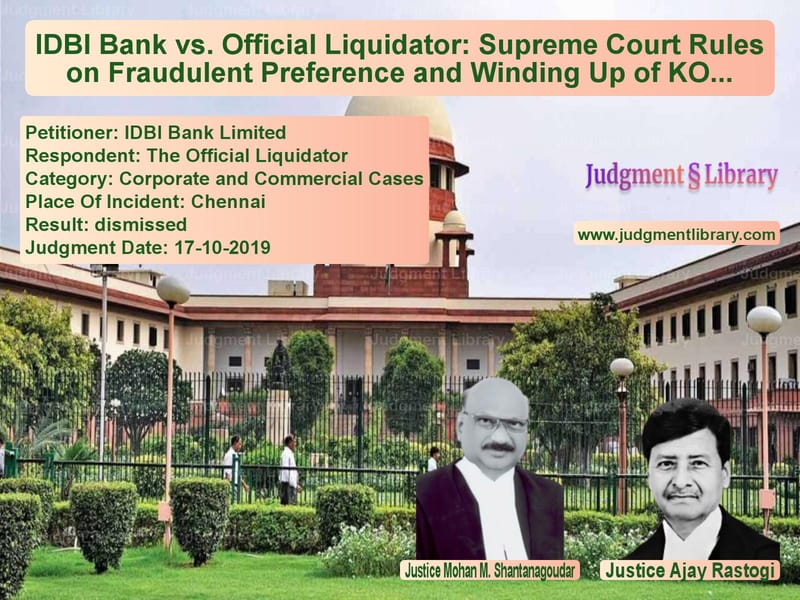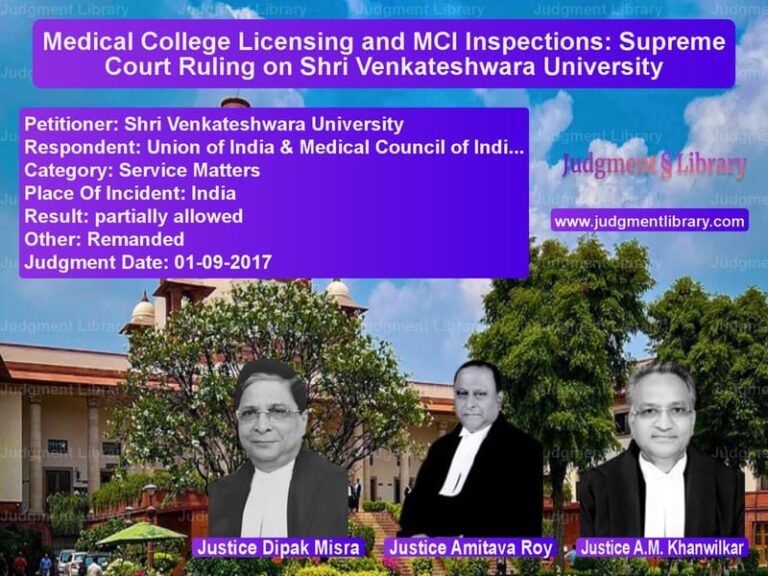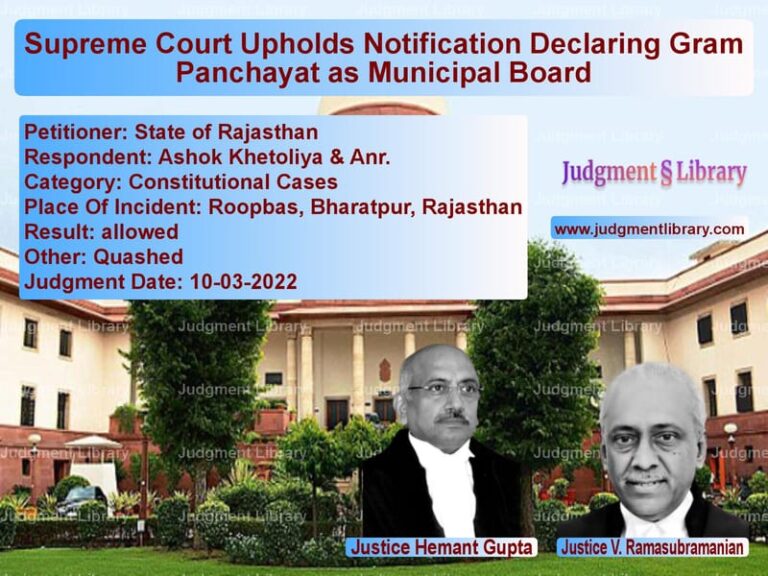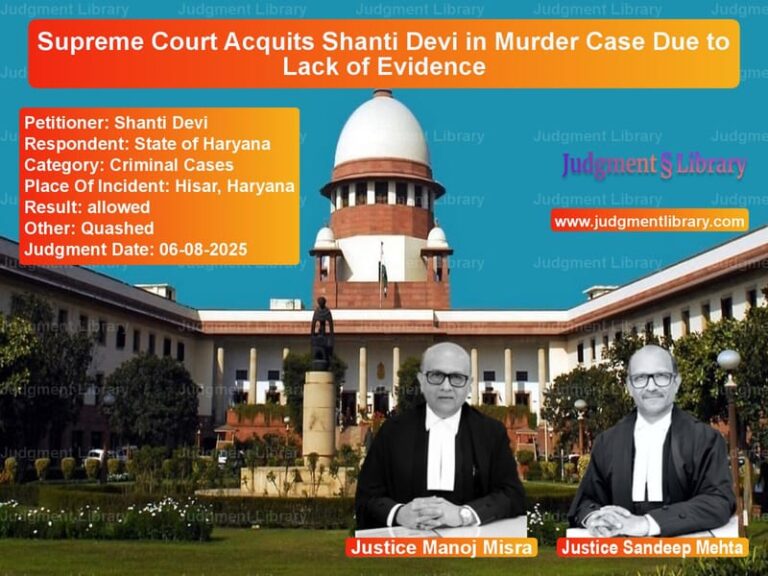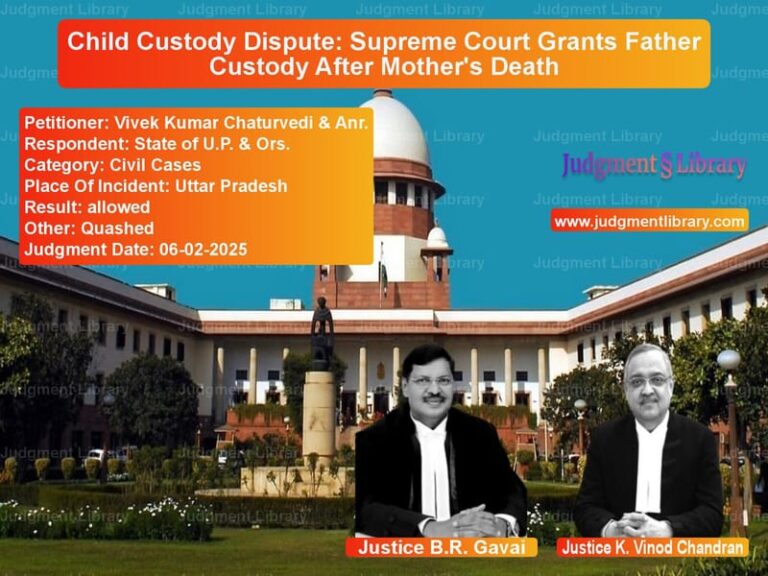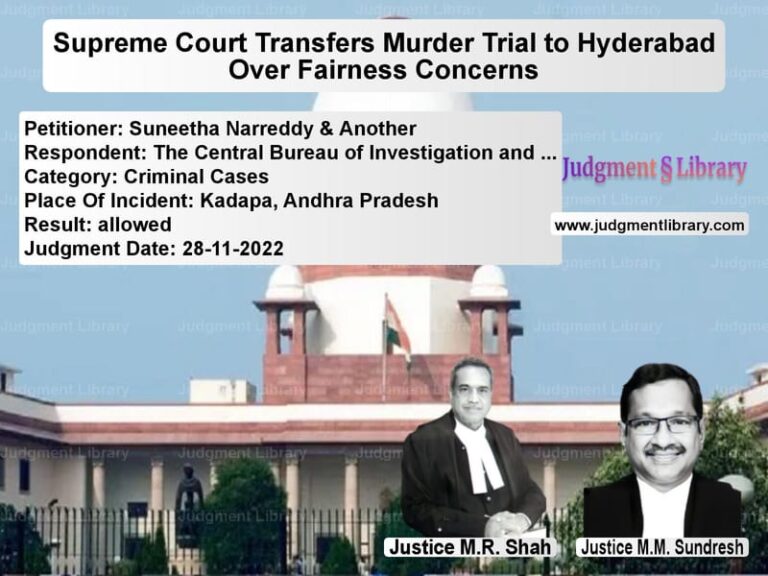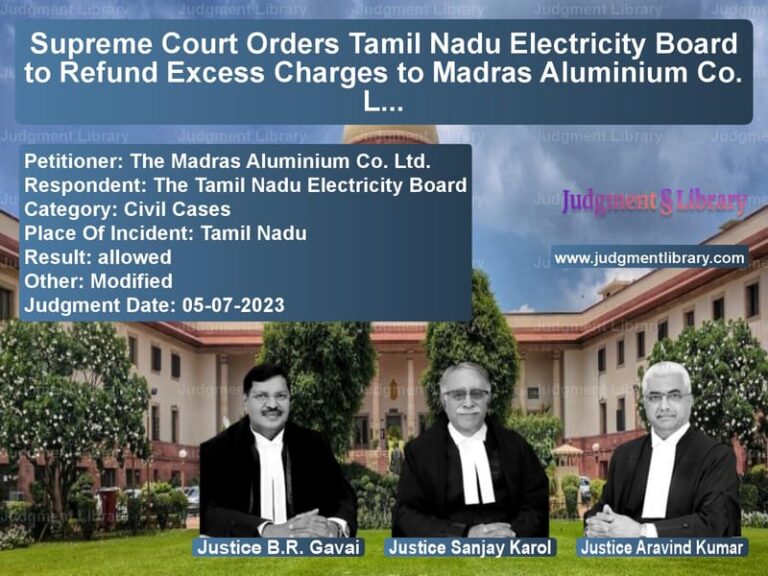IDBI Bank vs. Official Liquidator: Supreme Court Rules on Fraudulent Preference and Winding Up of KOFL
The case of IDBI Bank Limited vs. The Official Liquidator is a complex legal dispute concerning the winding up of Kothari Orient Finance Limited (KOFL) and the execution of a sale deed for property in favor of IDBI Bank. The case highlights important legal principles regarding fraudulent preference, corporate liquidation, and creditor rights.
The dispute originated when KOFL defaulted on its financial obligations, leading to winding-up petitions. IDBI Bank sought the execution of a sale deed for a property it had agreed to purchase from KOFL before the initiation of winding-up proceedings. The core legal question before the Supreme Court was whether the transaction constituted a fraudulent preference under Section 531 of the Companies Act, 1956, and whether the winding-up proceedings should be revived.
Background of the Case
Loan and Sale Agreement
KOFL obtained a working capital loan of Rs. 55 lakhs from United Western Bank (now IDBI Bank) on 20.03.1992. By 31.03.1999, the outstanding amount had grown to Rs. 60.55 lakhs. To settle its dues, KOFL proposed a one-time settlement, offering to sell its office space to IDBI Bank for Rs. 1.05 crores. The agreement to sell was executed on 17.02.2000, and IDBI Bank paid Rs. 41 lakhs as an advance.
Winding-Up Petitions
On 02.07.2001, two creditors filed company petitions seeking the winding up of KOFL under Sections 433(e) and 434 of the Companies Act, 1956. The High Court admitted the petitions on 05.12.2001 and appointed a Provisional Liquidator.
Legal Issues and Arguments
Petitioner (IDBI Bank) Arguments
- The sale agreement was executed well before the winding-up petitions were filed, ruling out fraudulent preference.
- The transaction had been approved by KOFL’s board and a No Objection Certificate from the Income Tax authorities was obtained.
- All unsecured creditors had been paid, and there was no justification for reviving the winding-up proceedings.
- The transaction did not require approval from KOFL’s general meeting since the property did not constitute the entire assets of KOFL.
Respondent (Official Liquidator) Arguments
- The transaction was a fraudulent preference as KOFL was already in financial distress when it entered into the agreement.
- The property sale should have been approved by KOFL’s general meeting under Section 293(1) of the Companies Act, 1956.
- Other secured creditors had not been satisfied, making it necessary to continue the winding-up process.
Supreme Court’s Observations
On Revival of Winding-Up Proceedings
The Supreme Court upheld the revival of the winding-up proceedings, agreeing with the High Court’s Division Bench. It ruled that:
- The failure to advertise the winding-up petition had deprived other creditors of the opportunity to participate.
- Several secured creditors, including SBI, had not been satisfied and had approached the Debt Recovery Tribunal.
- Winding-up proceedings are in rem, affecting all creditors and stakeholders.
On Fraudulent Preference
The Court ruled that the sale agreement did not amount to fraudulent preference under Section 531 because:
- The agreement to sell was executed sixteen months before the winding-up petition was filed, exceeding the six-month look-back period under Section 531.
- The possession of the property was transferred in November 2000, also outside the relevant period.
- The Division Bench’s interpretation that only “transfers” are covered under Section 531 was incorrect, as the provision also covers “any act relating to the property.”
On Execution of the Sale Deed
The Supreme Court dismissed IDBI Bank’s application for the execution of the sale deed, holding that:
- The sale of KOFL’s only immovable property required approval from the general meeting under Section 293(1), which was not obtained.
- Possession of the property was transferred contrary to the agreement’s terms, raising concerns about preferential treatment.
- Even if IDBI Bank later sought execution, it would be subject to the outcome of the winding-up proceedings.
Key Takeaways
- Fraudulent preference under Section 531 requires both an intent to prefer a creditor and a transaction within six months of the winding-up petition.
- Winding-up petitions must be widely advertised to ensure all creditors have an opportunity to participate.
- Corporate transactions involving substantial property assets require approval from the general meeting under Section 293(1).
- Courts will scrutinize transactions executed by distressed companies to prevent unfair advantages to specific creditors.
Conclusion
The Supreme Court’s judgment in this case underscores the importance of transparency and due process in corporate liquidation. While the sale transaction was not a fraudulent preference, the lack of general meeting approval and the presence of unsatisfied secured creditors justified the continuation of winding-up proceedings. The ruling provides clarity on creditor rights, corporate governance, and the procedural safeguards required in insolvency proceedings.
Petitioner Name: IDBI Bank Limited.Respondent Name: The Official Liquidator.Judgment By: Justice Mohan M. Shantanagoudar, Justice Ajay Rastogi.Place Of Incident: Chennai.Judgment Date: 17-10-2019.
Don’t miss out on the full details! Download the complete judgment in PDF format below and gain valuable insights instantly!
Download Judgment: IDBI Bank Limited vs The Official Liquida Supreme Court of India Judgment Dated 17-10-2019.pdf
Direct Downlaod Judgment: Direct downlaod this Judgment
See all petitions in Bankruptcy and Insolvency
See all petitions in Corporate Compliance
See all petitions in Company Law
See all petitions in unfair trade practices
See all petitions in Judgment by Mohan M. Shantanagoudar
See all petitions in Judgment by Ajay Rastogi
See all petitions in dismissed
See all petitions in supreme court of India judgments October 2019
See all petitions in 2019 judgments
See all posts in Corporate and Commercial Cases Category
See all allowed petitions in Corporate and Commercial Cases Category
See all Dismissed petitions in Corporate and Commercial Cases Category
See all partially allowed petitions in Corporate and Commercial Cases Category

